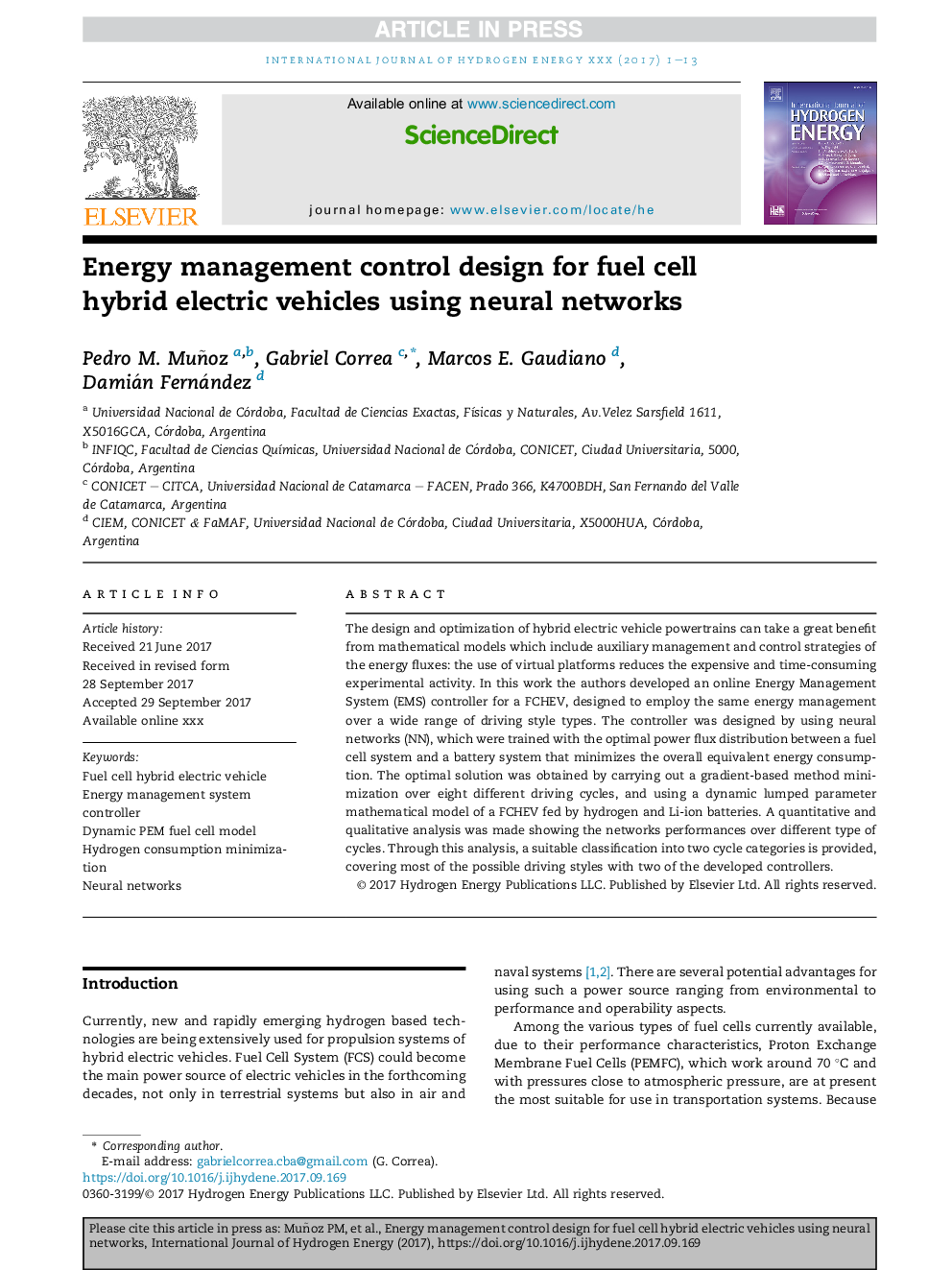| Article ID | Journal | Published Year | Pages | File Type |
|---|---|---|---|---|
| 7709324 | International Journal of Hydrogen Energy | 2017 | 13 Pages |
Abstract
The design and optimization of hybrid electric vehicle powertrains can take a great benefit from mathematical models which include auxiliary management and control strategies of the energy fluxes: the use of virtual platforms reduces the expensive and time-consuming experimental activity. In this work the authors developed an online Energy Management System (EMS) controller for a FCHEV, designed to employ the same energy management over a wide range of driving style types. The controller was designed by using neural networks (NN), which were trained with the optimal power flux distribution between a fuel cell system and a battery system that minimizes the overall equivalent energy consumption. The optimal solution was obtained by carrying out a gradient-based method minimization over eight different driving cycles, and using a dynamic lumped parameter mathematical model of a FCHEV fed by hydrogen and Li-ion batteries. A quantitative and qualitative analysis was made showing the networks performances over different type of cycles. Through this analysis, a suitable classification into two cycle categories is provided, covering most of the possible driving styles with two of the developed controllers.
Related Topics
Physical Sciences and Engineering
Chemistry
Electrochemistry
Authors
Pedro M. Muñoz, Gabriel Correa, Marcos E. Gaudiano, Damián Fernández,
